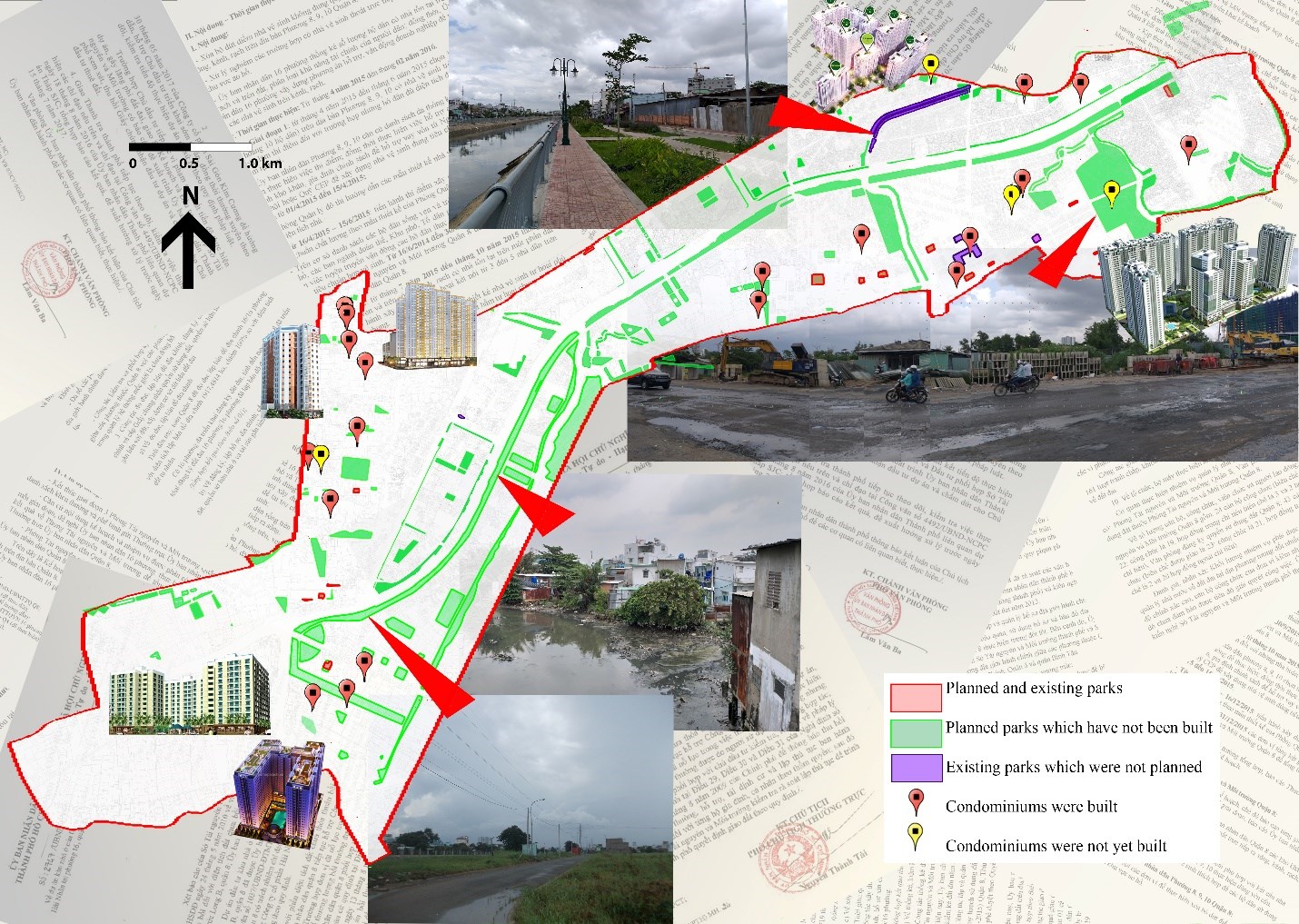Équité environnementale et accessibilité aux parcs à Ho Chi Minh Ville (Vietnam)
Hoang Anh Tu , Pham Thi-Thanh Hien , Philippe Apparicio
The objective of this article is to assess environmental equity regarding the accessibility of parks for four population groups (children, older people, low-education individuals, and highly-educated persons) in Ho Chi Minh City (HCMC). To achieve this, two accessibility measures calculated according to network distance in GIS: the distance to the nearest park (immediate proximity) and the enhanced two-step floating catchment area method (availability based on supply and demand). Several regression models were then constructed, with the accessibility measures as dependent variables and the percentages of the four groups as independent variables. The results show that the accessibility of parks in HCMC is very low: on average, city residents live 1.879 kilometres from the nearest park, and there are only 0.286 hectares of park per 1,000 residents within a two-kilometre radius. Moreover, children are affected by a double inequity, with lower proximity and availability of parks than is the case for the rest of the population

Type of production: Scientific articles and chapters
City: Hanoi
Year of publication: 2019
Publisher: Revue internationale de géomatique, vol. 29, no. 2
Language(s) of publication: Français
Keywords: